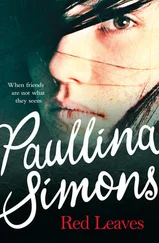“Well, I can attest that’s certainly not easy,” Julian says.
Sometimes parachute mines float down, she tells him, and when you get close to them, they explode and rip you open. That’s what happened to Lester. “Have you seen them?” When Julian shakes his head, she continues. Sometimes the incendiaries fall and everything is aflame and no one can get out. “Have you seen any of that?”
Julian nods. That he has seen, everything on fire and no way out. “People get caught under walls and broken glass.”
“Yes. Children—the few that are left—get trapped in the houses with their mums and grandmas and aunts. The older men and the kids can’t help. They sit nearby and watch their loved ones die under rubble no one can move or in a fire that’s out of control.”
“Are you afraid of fire, Mia?” Julian says, mining her face.
“I’m not not afraid of it,” she says, undisturbed by his scrutiny. “It’s not my favorite thing.”
He wants to ask her what her favorite thing is but doesn’t. What if she says it’s Finch?
“Today we helped a little,” Mia says. “But sometimes we can’t. Are you ready for that, to do everything in your power and still not be able to save the lady under the rubble?”
“No.”
He will never be ready for that.
MIA BRINGS HIM A MUG OF HOT TEA FROM THE REFRESHMENT truck. Julian must look as if he needs it.
“Where are you really from?” she says, looking at him calmly but questioningly. “Forgive me for saying this, but you look like this was your first bombing.”
“No, no, not my first,” he says hurriedly. “But I told you, I’ve been away. Just came back recently.”
“You’ll get used to it,” Mia says. “We all did. We had to. What a time to come back, though. Why didn’t you stay where you were? Where were you, Wales?” she asks, sparing him an answer. “Bet it was safer.”
“It’s true, Mia, there are magical dangers here,” Julian says. “But this is our last stand.”
“By our , you mean London, right? Not …” She flicks her finger between him and her and smiles, like a joke. And he forces a smile in return, like a joke also.
They remain at the site until almost daybreak. Eventually the fire brigades arrive and the police, and the rescue services, who remove the possessions from the blasted-out homes. The Incident Officer appears in an enormous truck. Finch works closely with the IO and without Finch’s meticulous itemization of damages, the IO’s job would be much harder. Finch is indefatigable. Hours after the all clear, he is still interviewing people, taking down information, even comforting them occasionally, if awkwardly. He tags what’s been found, he lists what’s been lost. He catalogs everything. He is like a less genius and less genial George Airy.
“Finch does this every night?” Julian asks Mia, a grudging respect creeping into his voice.
“Day and night,” she replies. “This is his full-time job. He gets paid by the Bethnal Green Council. There’s bombing during the day, too. You don’t know that either, East Ender? When did you get here, yesterday?”
“Hardy-har-har.” Sipping the tea that has cooled down much too quickly, Julian chortles and sputters, pretending her question is a rhetorical jest. Daytime attacks, too? Julian thought Wild had been exaggerating.
After the anarchy of the bombing, the organized, measured response to the madness makes Julian feel worse, even more out of sorts. He is used to punch for punch, slam for slam, kick for kick. He is not used to clipboards and quiet conversation after a wholesale demolition, not used to pale slim cordial indispensable women casually sifting through the debacle on a stranger’s behalf, looking for lost dolls and pearls.
In the blue icy pre-dawn, things look more surreal, not less.
The IO’s men spend hours loading the truck with items that have been recovered and tagged to haul to the storage depot or the “strong room.” Mia, Julian, Finch and Duncan continue to bring the valuables out into the street, one by one, little by little, precious toys, a fire truck, an heirloom Bible. Mia advises the dispossessed families to keep what’s most dear to them on their person, not to lose sight of it. The face she presents to the families is one of unflagging optimism and kindness. It’s going to be okay, she keeps saying. Your things will be found. The council will find you a new place to live. The shelters are warm and there’s food. Don’t worry. Keep your chin up. Don’t panic.
She’s a far cry from the frightened and desperate woman Julian found in Invercargill. Mia lives amid death, yet has not been ruined by the knowledge of her own death. Poor Shae , Julian thinks, bowing his head as if in prayer.
Julian, you’re a fool.
The Inferno is no place for pity.
In the past, he tried to look too far ahead, and now he’s being punished by being unable to look ahead even one more day.
Punished or rewarded?
We may be hopeless, Mia. But we’re not broken.
“Who are you praying for, Julian?” Mia says, coming up to him. The face she presents to him, too, is one of unflagging optimism and kindness.
His expression must confuse her, because she averts her gaze. “Do you want to sit, rest your feet a bit? You look exhausted. They’ll be okay, they’re used to it,” she says when she sees him scanning for Duncan and Wild. “Let’s sit.”
He and Mia huddle on the debris. Now that the fires have been doused and there’s hardly any warmth, the slush is turning to ice. Julian wants to put his arm around her. She seems so cold. He gauges how far Finch is from them, whether he can see them. He’s quite far and paying them no attention, but Julian decides not to antagonize the man any more than necessary, though he yearns to draw her to him, to embrace her.
“Maybe we should all go inside the strong room,” Julian says, “and leave the trinkets outside.”
“Why, are you tired of living?” She says it in jest.
“I’m not not tired,” he replies, wanting to fall asleep right then and there, on top of a crumbled house, next to her. He has been in the river, in the dry beds, in the tunnels, in the flames, awake for weeks or days. “What are we waiting for?”
“Finch,” Mia says. “It’s at least another hour before he’s done. He drives us back.”
Julian’s head bobs forward. Feeling her gaze on him, he shakes to stay alert.
“You got nowhere to go,” she asks. It’s not a question.
“I got nowhere to go.”
“So come back with us. We have room. The more, the merrier. Come back.”
What Julian wants is for her to go with him. Come with me , Mia. Come away with me. Away from this madness.
But come with him where, the hospital in Scutari, the demon fire, the deepest ocean? “Are you sure?” he says. “You look pretty full up at Bank. And your boyfriend doesn’t like me.”
“Can you blame him?” Mia smiles, self-aware but jokey. “Don’t worry, you’ve made a friend in Wild. You’ll be fine. He loves the girls but doesn’t usually take to the boys like he’s taken to you.”
“There’s no place for me,” he says.
“Sure, there is,” she says. “At night, you’ll be with us, and during the day you can sleep in Robbie’s bunk. He leaves for work at seven.”
“What about you, where do you sleep?”
“Who wants to know?” She smiles. “Just kidding. You saw where. One of the top bunks is mine. All the girls are in the top bunks.”
They exchange a glance. “For safety?” he asks.
She nods. “At Bank, we haven’t had any problems with assaults and whatnot—touch wood, as Mum would say—but other places have had some trouble, and it’s always better to be safe.”
Читать дальше












